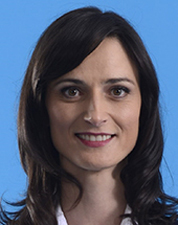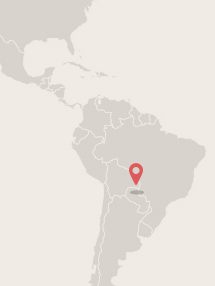 |  The internet has become an indispensable part of our daily lives and an essential economic infrastructure, but above all a space of freedom, exchange, trade and sharing. Some of us are old enough to remember the tremendous Web revolution initiated by Mosaic 25 years ago, which opened the doors to a new digital Library of Alexandria for each and everyone of us.
The internet has become an indispensable part of our daily lives and an essential economic infrastructure, but above all a space of freedom, exchange, trade and sharing. Some of us are old enough to remember the tremendous Web revolution initiated by Mosaic 25 years ago, which opened the doors to a new digital Library of Alexandria for each and everyone of us.
If the internet is built on a distributed and decentralised architecture, guarantor of resilience, freedom and innovation, the emergence of heavyweight players along the technical and information chain is creating a potential risk of new strongholds being erected.
In its 2015 regulation on the open internet, the European legislator enshrined this cardinal principle of freedom to access and distribute information and content, to use and provide applications and services without discrimination, via their internet access services, by imposing net neutrality obligations on operators, under the supervision of national regulators.
Arcep and its European counterparts are firmly committed to the task. On 30 May Arcep published its first report on the state of the internet in France, which explores this major issue.
Philippe Distler, Member of the Arcep Executive Board

|  |
 |
Regulation in action
Arcep publishes its annual report and delivers a progress report on its strategic roadmap!
The introduction of European open internet rules, the Digital Republic Act, the Independent Authorities Act (AAI) and the Montagne Act.
For Arcep, 2016 was a year of regulatory and legislative changes that had a direct impact on the scope of its responsibilities and its obligations. It was also entrusted with newfound investigatory and sanctioning powers last year. Arcep’s latest annual report provides details on the new state of affairs, and is divided into three volumes to comply with its reporting obligations.
In January 2016, Arcep delivered the conclusions of its strategic review in the form of a roadmap, and clarified its pro-investment doctrine. 2016 was therefore the year when this roadmap and these new priorities were put to the test, under Arcep’s State-platform approach. All of which provides the perfect opportunity to take stock of the progress made on the four pillars, three new forms of regulation and 12 priorities identified during the strategic review:
- four pillars of Arcep’s actions: investment in infrastructure, building smart regions, an open internet and a pro-innovation prism;
- three new forms of regulation: data-driven regulation, working together to construct regulation and serving as a neutral expert in digital and postal affairs;
- and 12 priority areas of focus.
Read the progress report on the 12 priorities to emerge from Arcep’s strategic review.
#telconomics|#mobilenetworksharing|#investment|#monreseaumobile|#BEREC|#openinternet|#IoTArcep
Annual report editorial by Sébastien Soriano, Arcep Chair and BEREC Chair in 2017 (in French)
Arcep annual report
Arcep in 2016, in 2 minutes
|  |
 |
|
On our radar
| |
Mariya Gabriel, future European Commissioner for Digital Economy and Society
In July, Bulgaria’s Mariya Gabriel is due to replace Günther Oettinger – who has become the European Commissioner for Budget and Human Resources – as Commissioner for Digital Economy and Society. European deputies from the Commissions responsible for Culture and Industry held hearings on 20 June.
| 
|
|
| |  | |
News from around the world
Competition driving increased connectivity and dedication to net neutrality
A joint summit on the topic of connectivity between BEREC and the Eastern Partnership Electronic Communications Regulators Network (EaPeReg), the Latin American Forum of Telecommunications Regulators (REGULATEL) and the Euro-Mediterranean Regulators Group (EMERG), was held on 31 May in Portugal. A total of 45 regulators from the world over were represented.
They discussed the investments needed to provide connectivity across their regions, spectrum-related difficulties and net neutrality challenges that needed to be addressed. A joint declaration was adopted at the end of the Summit. In it, the regulators declare their support for competition as a driver of increased connectivity. They also reiterate their dedication to net neutrality, recognising every person’s right to access and distribute the content and applications of their choice, without discrimination, unjustified slowing down or blocking.
The joint declaration
|
| |
 |
Arcep, telling it like it is
 In this time of tremendous change for the telecoms market for businesses, with new players and new products on the horizon, Arcep has joined the national effort to shepherd small and medium enterprises (SME) and micro-enterprises’ in their digital transition.
In this time of tremendous change for the telecoms market for businesses, with new players and new products on the horizon, Arcep has joined the national effort to shepherd small and medium enterprises (SME) and micro-enterprises’ in their digital transition.
Those who participated in the “Enterprise workshops” that Arcep hosted in 2015 were unanimous: SMEs and micro-enterprises suffer from a lack of information and clear advice when choosing telecoms products that match their needs. To remedy this situation, Arcep joined forces with employer federation, MEDEF, SME confederation, CPME, and French Telecoms users association AFUTT to produce an instructional guide for SMEs and micro-enterprises that includes the questions they need to ask, along with advice for switching operators. After several months of work the guide was published last week, and distributed to members of the trade press. What remains is for it to be put in the hands of SMEs and micro-enterprises – for which trade associations and the Directorate General for Enterprise (DGE) will be a key allies.
Going forward, Arcep teams will continue to work on the issue. They are in regular contact with the Enterprise Ombudsman and the Directorate General for Competition Policy, Consumer Affairs and Fraud Control (DGCCRF). We also plan on updating the guide later this year, and hosting another Enterprise Workshop in the autumn.
Yveline Ruaud
Policy officer for the “Business Market” unit
|  |
 |
MARK YOUR CALENDARS
4 July in Paris
FIRIP Symposium
The next FIRIP symposium will be devoted to broadband and superfast broadband access solutions in rural areas, such as satellite and fixed 4G. It will present the findings of superfast fixed wireless access services as well as those of a joint CNES – IDATE study that quantifies the number of households targeted by this type of solution.
With the participation of Cécile Dubarry, Director-General of Arcep.
5 July in Paris
Les Assises du très haut débit
“Fresh boost for superfast access/Un nouvel élan pour le très haut débit” is the topic of the 11th annual Assises du très haut débit superfast access symposium, hosted by PR agency Aromates. Arcep Chair Sébastien Soriano will take the stage in the morning to answer the question: “Achieving nationwide coverage: how to step up investment in France?”.
Find out more (in French)
11 to 14 July in Nassau
Global Symposium for Regulators (GSR-17)
The International Telecommunication Union will be playing host to all of the world’s telecoms regulators, to share their views and experience. Roaming and new regulatory paradigms will be at the heart of the four days of debate in Nassau.
Find out more (in French)
11 and 12 July in Marseille
Subsea Connect 2017
The submarine cable market has its own symposium! Subsea Connect 2017 will be taking place on 11 and 12 July in Marseille. A city that was not chosen by accident, as Marseille is a landing point for a great many submarine cables.
Find out more
“Submarine cables: a vital tool for the global internet” Cahier de l’Arcep 2012
| |

 |
|  |
|

